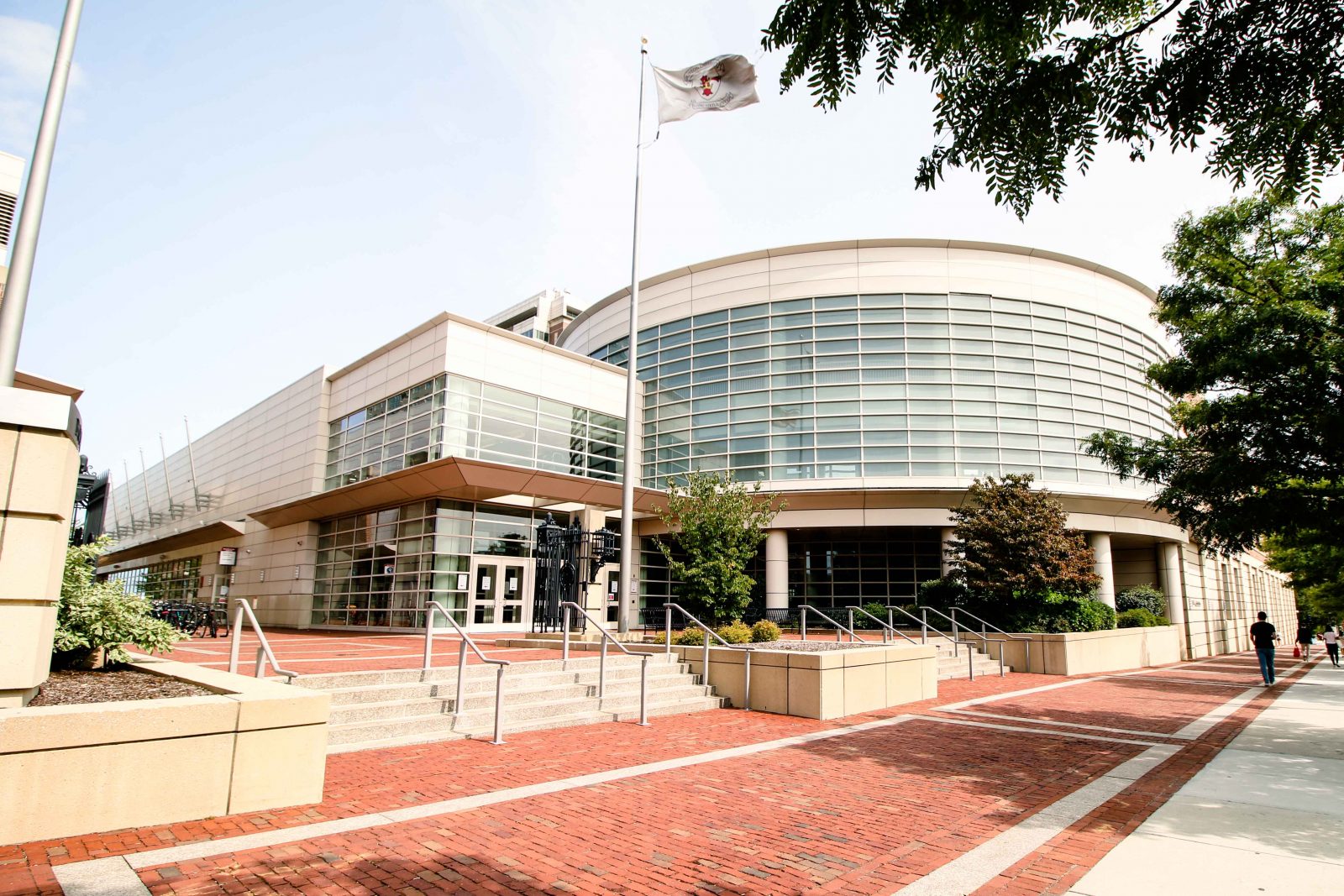
Boston University has been forced to reshape how students are able to go about their daily lives this Fall. For many students, that includes a change in the way they are able to work out.
In past years, BU’s Fitness and Recreation Center — equipped with 18,000 square feet of weight machines and cardio equipment; courts used for all kinds of sports; and swimming pools — has been the central source for exercise on campus.
But this year it will not be the same.
FitRec is incorporating precautionary restrictions to keep the BU community safe from COVID-19. Kristina Covarrubias, assistant director of marketing and communications, wrote in an email that students should expect “a new and different FitRec experience.”
The first among these is the requirement that all students, staff and other patrons in the building wear face coverings at all times, including during workouts.
As of now, the only students who have been granted access to the building are those taking in-person physical education courses — which are also offered remotely online — or have academic classes in the building. FitRec does plan to open the building to all BU students in the future, but has not provided an exact date for when that will happen.
Once the gym reopens, face masks will not be the only visible difference.
Students will have to register online for a workout time before using any FitRec facilities. They will then have to show a green Healthway badge as proof of compliance with the University’s safety protocols in order to be allowed in the building.
FitRec will be incorporating a system of 90-minute workout blocks followed by 30-minute blocks for cleaning. Equipment will also be sanitized by FitRec staff throughout the reservation blocks.
Physical modifications to the space will begin to appear immediately after entrance, as FitRec staff will be shielded behind plexiglass at reception areas.
FitRec can also no longer be packed with people: the building will be limited to allowing 40 percent of normal capacity. Strict social distancing will also be required, meaning fewer exercise machines will be available for use.
“There wasn’t enough space for all of the machines and some other equipment in our inventory,” Covarrubias wrote. “In addition, some equipment is not appropriate for use in a [COVID-19] pandemic environment. So, some equipment will remain in storage.”
These restrictions affect the accessibility of basketball and squash courts, as their capacity has also been reduced.
Despite the fact that FitRec and its operations will be significantly scaled back, the staff remains committed to offering patrons avenues for physical activity.
“We will be very limited in the activities we can provide, but we will continue to work to provide a variety of activities and serve as many people as possible while managing occupancy and protocols,” Covarrubias wrote.
Meanwhile, intramural sports will have to go totally online this Fall and utilize E-Sports video games alongside other virtual opportunities.
Some club sports, on the other hand, may be allowed to continue. Teams’ ability to operate will be based on the level of risk they pose, Covarrubias wrote. Approved club sport teams will follow the same safety protocols as everyone else.
Students are also expected to come ready to work out. Lockers will not be accessible, and FitRec is highly discouraging students from bringing any unnecessary personal belongings.
FitRec is also committed to working with the University’s contact tracers this year to seek out anyone who may have been in contact with a COVID-19-positive person while using its facilities.
All of these new rules will have an impact on student life as well.
Maggie Farr, president of BU’s chapter of Changing Health Attitudes and Actions to Recreate Girls, which utilizes FitRec, wrote in a text message that her club has had to shift to operate largely virtually this semester.
“A major part of CHAARG is the in-person experience, so this was a really hard call to make,” Farr wrote, “but we think it will ultimately be the best way to keep our members active while keeping them safe.”
While some avenues for exercise are able to continue despite the current state of public health, some on-campus sports clubs have decided they must cease to operate for now.
Noam Metivier, a sophomore in the College of General Studies and member of the Jiu-Jitsu Club, wrote in a text message that this kind of precaution may ultimately have an impact on broader mental health issues.
“Brazilian jiu-jitsu is something that has really helped me recently and the community around the sport really helped me assimilate my freshmen year,” Metivier wrote, “so the idea of not being able to do it for three months is something I am not looking forward to.”
In terms of how students can exercise outside of using traditional gyms, FitRec has curated a new program called “How to Keep Moving Wherever You Are.” The web page, which has been running since March, gives virtual instruction on various workouts that can be done outdoors or at home.
.




























































































































